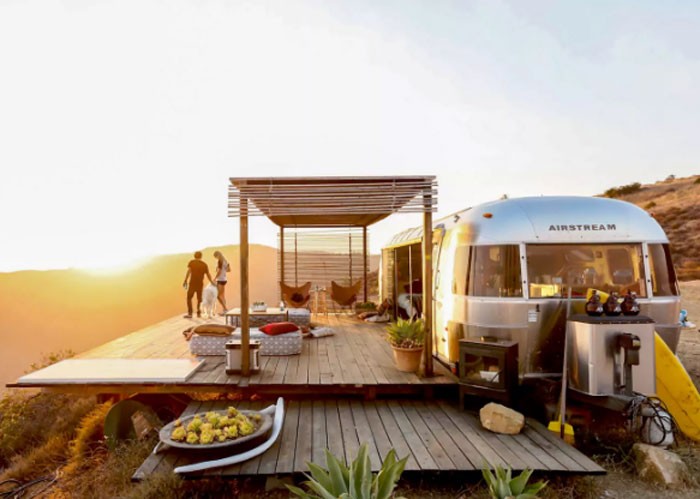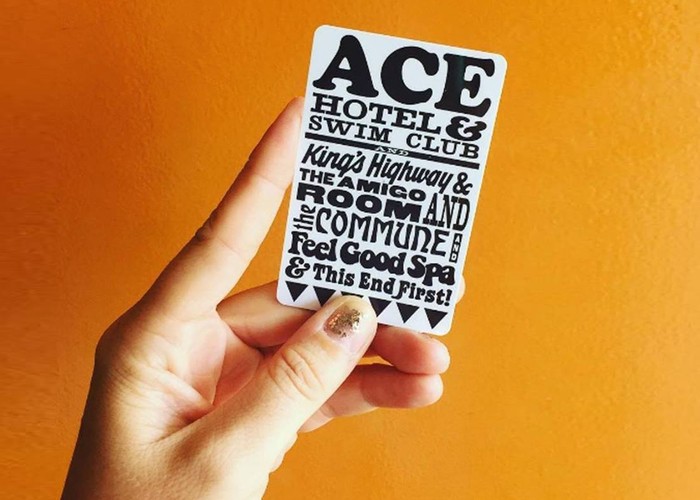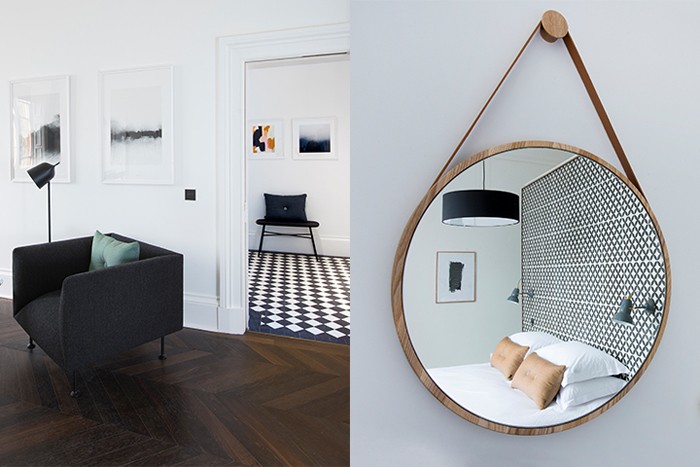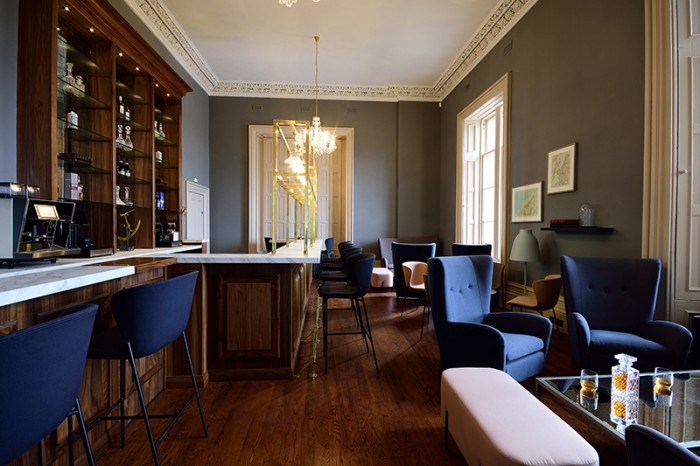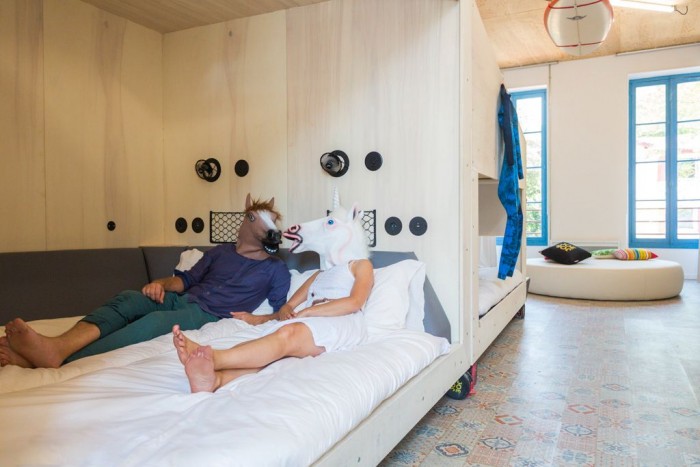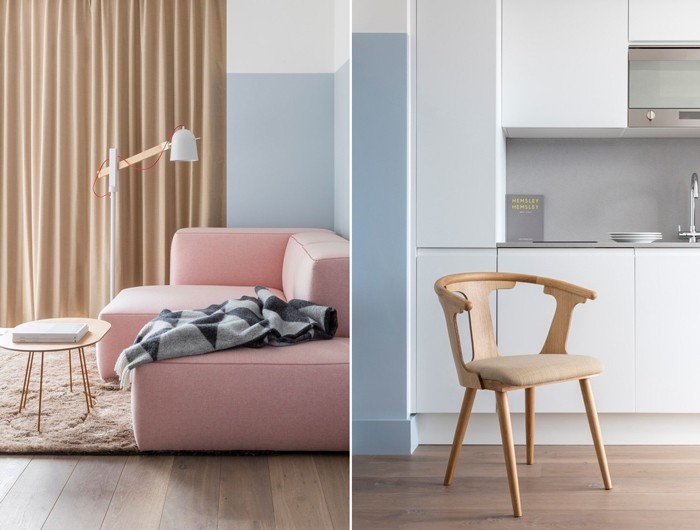Airbnb: An Opportunity!
In the Second of our new discussion series ‘Have Your Say’ we posed the question ‘Is Airbnb an opportunity or a threat?’ We had an interesting response, none more passionate than that from Leanne Wookey, Director at interior design and branding studio NoChintz.
Airbnb is an online marketplace and hospitality service, enabling people to lease or rent short-term lodging including vacation rentals, apartment rentals, homestays, hostel beds, or hotel rooms. Launched in 2008 Airbnb now has over 3,000,000 lodging listings in 65,000 cities and 191 countries.
When booking to stay in an Airbnb home travellers are offered an experience which the hospitality sector has strived (perhaps with limited success) to provide, the chance to ‘experience a city like a local.’ Leanne Wookey explained why her personal experiences have cemented her opinion on the draw of Airbnb:
‘I have used Airbnb around the world and have had a more fulfilled experience by doing so. The first of me two Airbnb highlights has to be staying on a cliff in Malibu, looking out over the sea, in a vintage Airstream with a fire pit and outdoor hot water shower to enjoy under the stars. The second was staying in a 10 bedroom house in Somerset where we had exclusive access to the smallest cinema in Great Britain for our entire stay.
Hotels just don’t have this kind of pull and is why Airbnb really works.’
Anecdotes of these wonderful experiences are plentiful, although Airbnb is not without difficulty. In September 2016 Channel 4 aired ‘Airbnb, Dream or Nightmare’ which highlighted difficulties experienced by both hosts and guests.
Despite the potential downsides the success of Airbnb cannot be ignored, so how can the hospitality sector learn from Airbnb and create their own opportunities? David Lee Hood, Associate at Goddard Littlefair and Kathryn Quinn, Field Designer at Ulster Carpets, are in agreement that service, experience and locality are key:
‘The growth of sharing-economy companies such as Airbnb gives hotels the opportunity to sell their customer service offer as a differentiating factor, as well as the incentive to become more personal in response to changing expectations.’ David Lee Hood
‘In many ways, Air Bnb has provided a (perhaps necessary) ‘shake up’ for the hospitality industry, which has encouraged the industry as a whole to reassess what the customer wants. In many cases, this is character and a real insight into how the locals live. We have become more of an ‘experience’ society and so hotel designers have had to respond to this. I think it’s an exciting shift in the industry, although I do wonder when Air BnB will have to step up and meet industry standards and regulations.’ Kathryn Quinn
Leanne Wookey explained that the hospitality sector are already grasping these opportunities, sighting many examples of hotels who are balancing out the past trend for over the top styling with an new, extremely considered, approach looking at quality and an individual’s whole experience. Ace Hotels are one brand leading this:
‘Ace hotel are great hotels! I have stayed in Seattle, Portland and Palm Springs and they all provide you with a really laid back vibes. They feel like fully independent hotels, each with an individual identity, and have a locality to them in each city.
Each of the hotels has a high quality bar, cafe and restaurant with a main street presence as well as an access from the hotel. This makes the hotel a destination and encourages interaction with the hotel even if you aren’t a guest.
This level of consideration is better for the hotel, visitors spend more timein the hotel, but it also integrates the hotels in to each community. This link with the community extends into touches including a mini bar tailored to your city and products sourced from local independents rather than national chains.
Ace Hotels concentrate on the key things in your room, are never over indulgent or fancy in your face materials, everything is timeless and considered so the beds and pillows are incredible and if you like them so much you can buy them online from the Ace shops!’
This approach to embedding locality and experience into a hotel is something which Leanne and the NoChintz team know in great depth. No Chintz recently completed the second stage of their collaboration with Natural Retreats at Lews Castle. The spectacular venue includes a Whisky Bar, Storehouse Café, Outfitters retail store, and private Family Room for use by guests to the upper floor self catering apartments.
Details which bed the interiors, and visitor experience, of Lews Castle in to it’s locality include lighting above the whisky bar reflecting the traditional cut glass whisky glasses, and added a sense of drama to the design. A vintage haberdashery counter was selected for the Outfitters retail store as the till point area, harking back to the age and history of the building and glass cloches and brass-trimmed display boxes were placed alongside bespoke fabric mannequins in reflection to the historic museum displays on show in the adjoining British Museum space.
The influence of Airbnb is not limited to an emerging new approach in hotels, it has also sparked new hospitality concepts including Jo & Joe and Leman Locke:
Jo & Joe
Jo & Joe has been created by the Innovation Lab, Department of the international headquarters of AccorHotels to provide a hospitality experience their existing brands are unable to offer to their defined demographic: Mellennials. This new brand sits between youth hostel, hotel and private rental, describing itself as an ‘Open House, a new kind of hospitality.’
Leman Locke
We first featured Leman Locke on Design Insider in April, designed for travellers for whom a bed and shower in a shoebox isn’t enough, Locke immerses you in its neighbourhood’s culture through spaces that connect you to a community of like-minded locals and travellers. This ‘aparthotel’ consists of 168 apartments, divided into 105 studios and 63 one bedroom suites.
Design-conscious serviced apartments are a growing trend in the hospitality industry: travelers are seeking out extra living space and a degree of home comforts, but with a high-spec finish more akin to a top hotel. We posed the question: is this the perfect blend of high-end hotel and AirBnB?
Airbnb has shaken up the hospitality sector, forcing hotels to forge new paths for themselves and creating new hospitality offerings which balance the experience demanded by travellers with the reliability of a hotel. It will be interesting to see how Airbnb continues to influence the hospitality sector and we look on with interest at how and when Airbnb will conform to the sectors standards and regulations.
Let us know your opinion on Airbnb in the comments below or on Twitter @DesignInsider1






